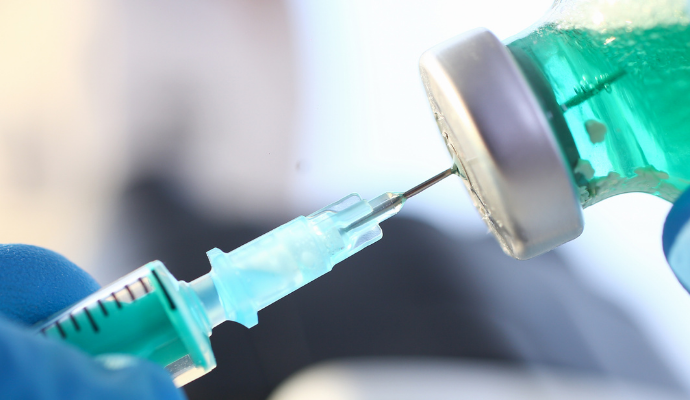Moderna, IAVI Dose First Patients in Trial of HIV Vaccine Antigens
The Phase 1 trial will test whether HIV vaccine antigens can induce specific classes of B-cell responses and guide early maturation toward neutralizing antibody development.

Source: Getty Images
- Modern and IAVI recently dosed the first two patients in a clinical trial of experimental HIV vaccine antigens at the George Washington University (GWU) School of Medicine and Health Sciences.
The Phase 1 trial will test if sequential administration of priming and boosting HIV immunogens delivered by messenger RNA (mRNA) can induce specific classes of B-cell responses and guide early maturation toward neutralizing antibody development.
The trial will enroll 56 healthy HIV-negative adult volunteers. About 48 participants will receive one or two doses of an mRNA vaccine, with 32 of them receiving the boost Core-g28v2 60mer mRNA Vaccine.
Additionally, eight volunteers will receive the boost immunogen alone.
The induction of neutralizing antibodies is a goal of HIV vaccination. This trial is the first step in this process, a Moderna spokesperson explained.
“We are very pleased to be partnering with IAVI and the Bill & Melinda Gates Foundation to apply our mRNA technology in the setting of HIV. At Moderna, we believe that mRNA offers a unique opportunity to address critical unmet public health needs around the world,” Stephen Hoge, MD, president of Moderna, said in the announcement.
“We believe advancing this HIV vaccine program in partnership with IAVI and Scripps Research is an important step in our mission to deliver on the potential for mRNA to improve human health,” Hoge continued.
Scientific teams at IAVI and Scripps Research developed the immunogens. Researchers will tap Moderna’s mRNA technology to test the immunogens.
William Schief, PhD, professor at Scripps Research and executive director of vaccine design at IAVI’s Neutralizing Antibody Center (NAC), originally developed the HIV vaccine antigens as proteins.
The Schief lab pioneered the vaccine design approach where Naïve B cells display antibodies encoded by unmuted genes. A series of vaccines has the potential to target specific naïve B cells and induce them to mature into bnAb-producing ones.
Last year, the IAVI G001 clinical trial showed that an adjuvanted protein-based version of the priming immunogen induced the desired B-cell response in 97 percent of recipients.
Moderna’s platform offers a more responsive vaccine design and testing approach, which could potentially shave off years from typical vaccine development timelines.
